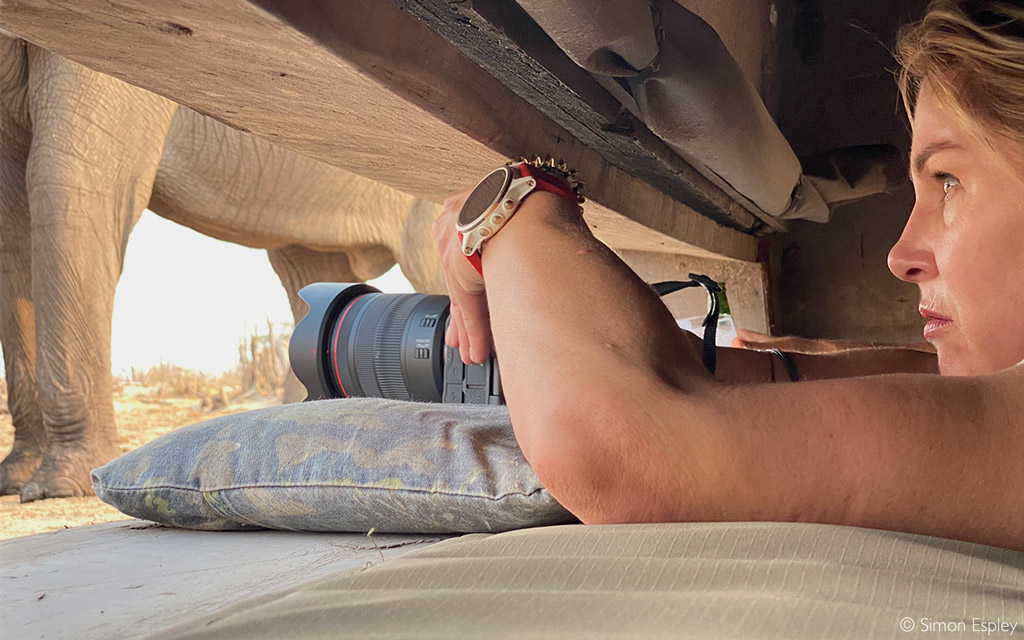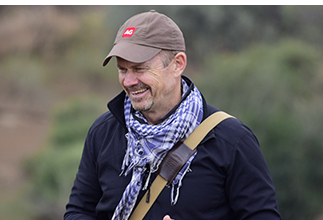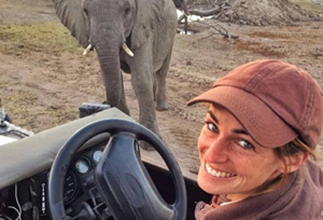
This is a copy of our weekly email newsletter. Subscribe here to receive the newsletter.

So. Jamie has raised a few eyebrows with her CANDID thoughts on rescuing a duiker from a lingering death in sticky mud. Read what she has to say in her editorial below and join the debate in our club. Park the emotions, please, and debate the issue.
Our new app is cooking and thousands have already signed up – thanks so much! Watch this space. We have a 100-YEAR PLAN to host the most important people in the African safari and conservation space, and you are invited. Our travel & conservation club is for those who wish to debate the issues, donate to worthy projects and travel responsibly.
With so many of our safari clients now travelling again or at least booking for what will be an epic 2022 safari year – YAY! – we shed light on travel opportunities across Africa in the coming few months. Our second story below refers.
And our final story below is about that most striking of African gladiators – the oryx. A farmer once told me that if you flick a coin at a gemsbok it will easily smack it aside with those rapier horns. I pity the desert-adapted lion that ends up on the sharp end of these handsome creatures.
Keep the passion

Simon Espley – CEO, Africa Geographic
From our Scientific Editor

A few years ago, several lion prides in a reserve in South Africa contracted mange. As the images of scabby, miserable lion cubs made their way onto social media, the reserve management was bombarded with abusive messages about how heartless and cruel it was not to treat them. Some pleasant missives even found their way into my inbox, despite the fact that I was totally removed from any kind of decision-making power. Management stood firm and many of the lions died.
And I believe that was the right decision. Yet fast forward a few years later to a duiker struggling in the drying mud of a manmade dam. With the previous furore in mind, I recruited a couple of willing volunteers, we pulled her out (in a true comedy of errors known only to those involved) and kept our mouths shut. In that moment, I had absolute sympathy for the management’s decision not to interfere. Every decision to intervene has to be judged on the nuance of circumstance but a public decision to do so creates an expectation and fury when that expectation is not met in the future.
The point is this – social media frenzy and the rise of the armchair activist have added a new dimension to the age-old debate on treating wild animals. With the current challenges facing our wild spaces, it may seem trivial. But our perspectives on it go to the heart of the ethics governing every decision – from human-wildlife conflict (and the shameful lack of consideration afforded to local people living with wildlife) to trophy hunting. What is the “‘Greater Good” and how do we balance the utilitarian needs of a living, balanced ecosystem?
I’ve penned some of my thoughts in our first story below (for club members only), but it only just touches the surface of a deeply complex issue. Now we want to hear your opinions!
Finally, one of our main objectives in the creation of our private travel & conservation club is to provide a platform for trusted organisations involved in practical conservation and research to present their work and ask for support when needed. Our friends at Elephants Alive are asking for your help – have a look at their club forum post.

Story 1
https://africageographic.com/stories/grabbing-the-lion-by-the-tail-intervention-vs-interference/
DEBATE THIS
Intervention in the lives of wild animals is controversial and there are no simple answers to when or if it is appropriate. Club members only
Story 2
https://travel.africageographic.com/when-to-go-on-safari
SAFARI SEASONS
When is the best safari season in Africa?
Story 3
https://africageographic.com/stories/oryx/
DESERT GLADIATORS
The four oryx (gemsbok) species are robust, dignified and courageous – icons of the desert & perfectly adapted to their arid environments
 TRAVEL DESK UPDATES:
TRAVEL DESK UPDATES:
• We love 5-star reviews from our safari clients! Thanks, Heste de Beer, and let’s plan that bucket list trip of yours to see Africa’s rarest primates! Check out Heste’s full review here
• Safari Njema! Can you feel that safari vibe in this drool-inducing video from Mara Expedition Camp in the Maasai Mara? For the best prices for this and many other camps and lodges check out our club lodge collection
• Search our website here for excellent safari advice and trip reports – 30 years of accumulated experience and wisdom
 DID YOU KNOW: Chelonian (turtle, tortoise and terrapin) shells are made from shoulder blades and ribs
DID YOU KNOW: Chelonian (turtle, tortoise and terrapin) shells are made from shoulder blades and ribs
To comment on this story: Login (or sign up) to our app here - it's a troll-free safe place 🙂.![]()







